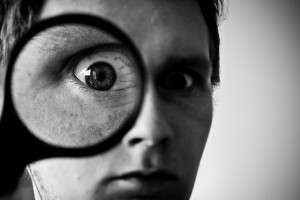Once you have had time to ponder over the accuracy of the Enneagram through using it for self-observation, you can begin to use the Enneagram to observe other people. Not like a voyeur might, but rather as a mechanism through which you can begin to understand what motivates other people’s attitude behind their behaviour. This will allow you to have a lot more insight into them, perhaps even some insights which they may not even have into themselves.
How often in your daily life, at work and at home, do you find yourself wondering why people behave they way they do? You may wonder why they push certain buttons in you or you may be consciously aware of what exactly it is that irritates you about them. Maybe it’s because in your opinion some people ‘sit on the fence’, procrastinate, or ‘never’ seem to be able to make a decision. Perhaps they are just really critical of everything you do without any particular reasoning, perhaps they are far too honest and pretty rude in (what you would consider to be) inappropriate ways. Perhaps you sometimes get the feeling that you can never tie certain colleagues down because their minds seem to jump from idea to idea without sufficient detailed consideration. Perhaps you have experienced some people who appear to always look at the glass half empty, through a lens of anxiety and like life is full of worst case scenarios. Perhaps some people seem always to be lost in deep and overly considered thought and at times they appear almost aloof or distant. Some people appear to have emotional ‘all fall downs’ far too often for an adult, where as others are so helpful (which is lovely) but can almost be claustrophobic for others. For some, their desire to be the best can be really annoying because you get the feeling that their confidence must be almost impossible. 
Alternatively you may ask yourself at times why some people are just so easy to get along with. Perhaps you could start by observing what it is about them that you find so easy.
Why would you use the Enneagram to observe others?
- To influence them constructively
- To understand how other people think, feel and behave
- To have empathy for other people and why they are the way they are (what is their attitude behind their behaviour)
- To determine who in your team is willing to grow as a person
- To be able to assess whether people you work with are even willing to express self-awareness and self-disclosure
- To be able to pinpoint high functioning individuals (by understanding type, you can understand more accurately that others may not look productive according to your lens, but actually they are very productive, their communication style might just be different)

